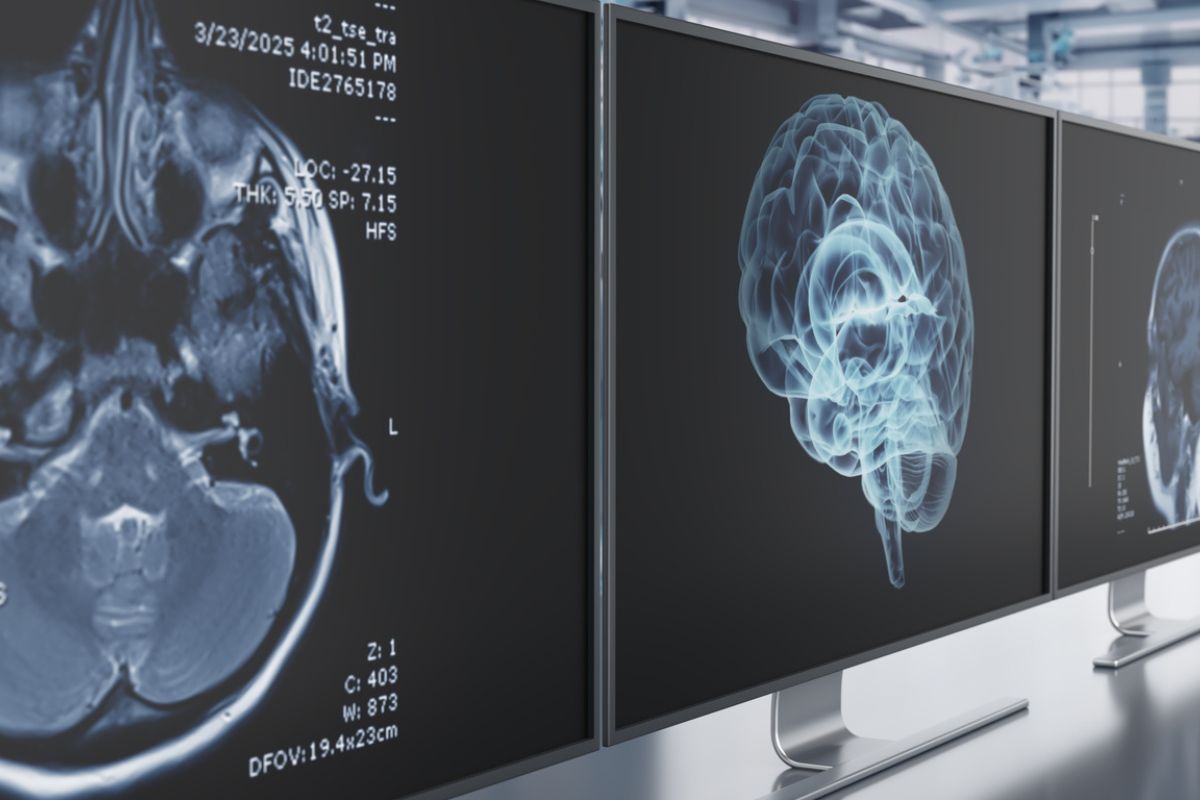While discretion – and good manners – have long demanded that mealtime conversation avoid politics, it seems most of us are ready to revisit that advice.
An American Psychological Association survey in late 2024, for example, found that more than 7 in 10 adults admitted that they wanted to avoid talking about politics over the holidays.
“Leading up to the 2024 presidential election, many Americans faced prolonged worry and uncertainty, which can significantly impact our well-being and relationships,” APA CEO Arthur C. Evans Jr., PhD, said in a press release.
But it appears that there could be more to our political “enthusiasm” than the ideological beliefs that originally shaped them. Research out of Northwestern University seems to have singled out specific brain networks that steer our political passions – or at least the intensity of them.
Neurological Origins
Appearing in the journal Brain, the paper charts new territory: the neurological basis of our political intensity. The study’s authors focused their attention on Vietnam War veterans – some who’d suffered brain injuries and a control group that hadn’t.
Specifically, they looked at how localized brain lesions influenced the intensity of the subject’s political feelings. By comparing veterans with specific brain damage to those without, the authors managed to pinpoint certain brain formations that are responsible for regulating political engagement.
The study results showed that damage to the prefrontal cortex fueled a spike in the intensity of one’s political emotions. Conversely, damage to the amygdala resulted in reduced political intensity. These results persisted even after the team controlled for factors such as age, education, party affiliation, personality traits, and other neuropsychiatric symptoms.
“While most people have not sustained brain injuries similar to those in the study, our findings highlight the neural circuits involved in political engagement for the general population,” senior author Jordan Grafman and professor at Northwestern University Feinberg School of Medicine and director of brain injury research at Shirley Ryan AbilityLab, said in a press release. “We didn’t identify networks tied to specific ideologies, but rather circuits that influence the intensity of political involvement across the spectrum.”
Methodology
The research stems from the Vietnam Head Injury Study, a long-term investigation into the neurobehavioral effects of combat-related brain trauma. Between 2008 and 2012, neuroscientists administered extensive behavioral surveys to Vietnam veterans, evaluating their political beliefs and the intensity of their emotions from more than 40 years after their injuries. Participants reported both their current and pre-injury political behavior.
The researchers studied 124 male U.S. military veterans with penetrating head trauma and 35 combat-exposed control participants without brain injuries. The team used lesion network mapping to find out whether certain brain networks showed links to their politics based on behavioral data.
Grafman, who’s explored the biological and cognitive foundations of religious fundamentalism before, this helps us better understand how the brain shapes beliefs.
“This knowledge allows us to better assess meaningful aspects of life for both patients and healthy individuals,” he said. “We also hope this research will inform new approaches to helping patients recover from brain injuries.”
Real-World Implications
The study’s findings suggest that our emotions play a huge part in how we express our politics. And recognizing these brain mechanisms could help us engage more productively in political discussions. That might include incorporating strategies such as detaching emotionally during political debates, listening more actively (and openly) to different points of view, and maybe even cooperating on shared goals.
These insights also have clinical implications. Existing neuropsychiatric evaluations rarely assess changes in political behavior following brain injuries.
Grafman advises incorporating such questions into assessments, stating, “Like other aspects of social behavior, clinicians should inquire whether a patient has experienced shifts in political attitudes post-injury.”
Further Reading
The Psychology of Political Polarization
Research Sheds Light on Traumatic Brain Injuries
Post-2020 Election Partisan Hostility Left Americans Traumatized



